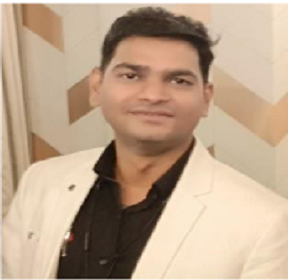Speakers
Huang Wei Ling
Medical Acupuncture and Pain Management Clinic BrazilTitle: Chakras’ Energies Deficiencies in Patient with Congestive Heart Failure
Abstract:
Introduction: Congestive heart failure (CHF) is a complicated syndrome characterized by the inability of the heart to bomb adequate amount of blood to reach the necessity of each organ and system that compose the body. In traditional chinese medicine (TCM), CHF can be due to deficiency of Yang, Qi, Blood stasis, Yin deficiency, retention of water and phlegm.
Purpose: to demonstrate that patients with CHF have chakras’ energies deficiencies and the replenishment of these deficiencies leads to the improvement of the function of the Heart.
Methods: through one case report: 82 years-old women with Alzheimer´s disease with history of congestive heart failure since 8 years ago, in use of medications to control the function of the heart, antihypertensive and antidepressant medications. The family began to take her to acupuncture sessions to try another way of treatment of her depression and Alzheimer’s disease. The doctor did the radiesthesia procedure to evaluate the degree of her energy deficiency and discovered that all her chakras’ energies centers (Heart, Spleen, Lung, Kidney, Liver) were in the minimum level, with exception of the seventh that was normal. Treatment started with chinese dietary counselling, auricular acupuncture with apex ear bloodletting and replenishment of the chakras’ energies centers with highly diluted medications such as homeopathies according to the theory constitutional homeopathy of the five elements based on Traditional Chinese Medicine (CHFETCM) and crystal-based medications.
Results: after the first acupuncture session and the beginning of the use of medications (homeopathies and crystals), the patient improved very quickly of her dyspnea and her purpleness on the fingertips and lips disappeared completely after beginning of the treatment.
Conclusion; the conclusion of this study is that patients with congestive heart failure have energies deficiencies and also in the chakras’ energies centers and the treatment correcting the energies disturbances using chinese dietary counselling, auricular acupuncture and apex ear bloodletting and replenishing the chakras’ energies centers using homeopathies medications according to the theory CHFETCM and crystal-based medications are very important tools in the treatment of this CHF in the energy point of view and not the patients symptoms.
Biography:
Huang Wei Ling is a specialist in infectious and parasitic diseases, a general practitioner and parenteral and enteral medical nutrition therapist. Once in charge of the hospital infection control service of the city of Franca’s General Hospital, she was responsible for the control of all prescribed antimicrobial medication and received an award for the best paper presented at the Brazilian Hospital Infection Control Congress in 1998. Since 1997, she works with the approach and treatment of all chronic diseases in a holistic way, with treatment guided through the teachings of traditional chinese medicine and hippocrates. Researcher in the University of São Paulo, in the ophthalmology department from 2012 to 2013. Author of the theory constitutional homeopathy of the five elements based on traditional chinese medicine.
Huang Wei Ling
Medical Acupuncture and Pain Management Clinic BrazilTitle: Myocardial Infarction without Arterial Obstruction in Patient Post COVID 19 Treatment
Abstract:
Introduction: Some risks factors assotiated wuth COVID-19 infections were estableished such as coronary artery disease in patients with SARS-CoV-2 infections. The use of highly concentrated medications accorfing to Ardnt Shultz Law can induce reduction in the vital energy, leading to stagnation of blood and propensity to have myocardail infaction even without arterail obstruction.
Purpose; to demonstrate that patient with COVID-19 infection that received highly concentrated medications to treat this infection, have more propensity to develop myocardila infarction some days after the treatment instituted.
Methods; through one case report of 42 years-old patient with history of acquired COVID-19 on january 2nd 2021, he was admited in the hospital due to dyspnea symptons, myalgia, and needs oxigenation. He received the medications, ivermectine, hydroxicloroquine, corticosteroids . After 18 days of the initial manifestations, the patient felt pain in the chest and went to the hospital and they found that his troponin were increasing gradually and after two hours of it increased many times and the physician decided to admit him again in the hospital to make more exams. The patient was submitted to cattheterization and the result of this procedure were that all his coronary were in perfect state of health without any obstruction and they treated him as he had myocardial infaction. After three months , the patient went to the author´s clinic to evaluate his condition and she did chakras’ energy centers measurement.
Results: the results of this condition that revealed that all his chakras’ were in the lowest level of energy with exception of the seventh that was normal. The author began his treatment with the use og homeopathies medications according to the theory constitutional homeopathy of the five elements based on traditional chinese medicine.
Biography:
Huang Wei Ling is a specialist in infectious and parasitic diseases, a general practitioner and parenteral and enteral medical nutrition therapist. Once in charge of the hospital infection control service of the city of Franca’s General Hospital, she was responsible for the control of all prescribed antimicrobial medication and received an award for the best paper presented at the Brazilian Hospital Infection Control Congress in 1998. Since 1997, she works with the approach and treatment of all chronic diseases in a holistic way, with treatment guided through the teachings of traditional chinese medicine and hippocrates. Researcher in the University of São Paulo, in the ophthalmology department from 2012 to 2013. Author of the theory constitutional homeopathy of the five elements based on traditional chinese medicine.
Sunil Hariram Pal
A.S.S. Ayurveda Mahavidyalaya IndiaTitle: Complex Interlinked Connections between Stage-I Hypertension & Genetic factors.
Abstract:
Hypertension is considered to be a complex trait to which genetic, environmental, and demographic factors contribute interactively. Recently, molecular genetic studies have achieved remarkable success in the elucidation of causative mutations in several Mendelian hypertensive disorders in which single nucleotide polymorphisms (SNPs) disrupt the function of single genes, thereby leading to unambiguous phenotypes. It seems unlikely,however, that such a simple base substitution is the primary mechanism in cases of Stage- I Hypertension, even if SNPs modify the relevant gene function to some extent. Despite the enormous efforts made to date, no consistent association between any of the candidate genes and essential hypertension has been established. One plausible explanation is that because individual genes play a modest role in the pathogenesis of hypertension, confounding variables, whether individual (sex, ethnic origin, etc.) or environmental, may decrease the chance of identifying a causative relation between the genes and hypertension, depending on the populations studied. Several approaches can be proposed to overcome this problem, including long-term follow-up of clinical events collected to attain sufficient phenotypic information and statistical power. With the recent advances in high-throughput genotyping techniques and bioinformatic strategies, it has become possible to perform even SNP-based genome-wide screening. At present, however, the need for identification of susceptibility genes for hypertension still poses a great and unanswered challenge. Identifying further genes probably conferring even smaller attributable risks represents a major challenge for future developments in this area.This contrasts markedly with the success that has been achieved in the past 5 years in solving the molecular genetics of a number of rare familial hypertension syndromes. The true incidences of some of these disorders may be higher than first appreciated, but it is still unclear if the genes for these syndromes also play a part in Stage-I Hypertension. A more complete understanding of the genetic basis of essential hypertension should be possible in the coming years using new strategies that take advantage of the information provided by the human genome project.
Biography:
Dr. Sunil Pal has completed his B.A.M.S graduation at the age of 24 years from Rajiv Gandhi University of Health Sciences (Bangalore), India. He is now pursuing post graduation in M.D. Kayachikitsa (Internal Medicine- Ayurveda) from Maharashtra University of Health Sciences (Nashik), India. He has over 9 international Publications with 2 abstract as titled in souvenir in his post graduation academics period. Recently he has been awarded with “Bharat Gaurav Puraskar 2021” and “Certificate of Excellence” for outstanding contribution in the field of “Ayurveda Physician”. Recently nominated as “Young Scientist” & “International Scientist” by VDGOOD foundation, coimbatore & Als nominated as “National Excellency Award” by KTK Foundation, New Delhi. He has won many prizes in Quizzes, Paper presentations, poster presentations, essay writings, article writings etc. He is active member of N.Y.L.P. NGO, Mumbai, India also supporting member of AAPNA (Association of Ayurvedic Professionals of North America, USA). He is currently doing research trial on Gokshura (Tribulus terrestris) herbs in Stage-I Hypertension. He is determined to pursue Academia Research. He is enamored of teaching and Clinical Research. He has main interest in Blood disorders, Neurology Auto-immune disorders, Oncology, Nephrology in Ayurveda.



